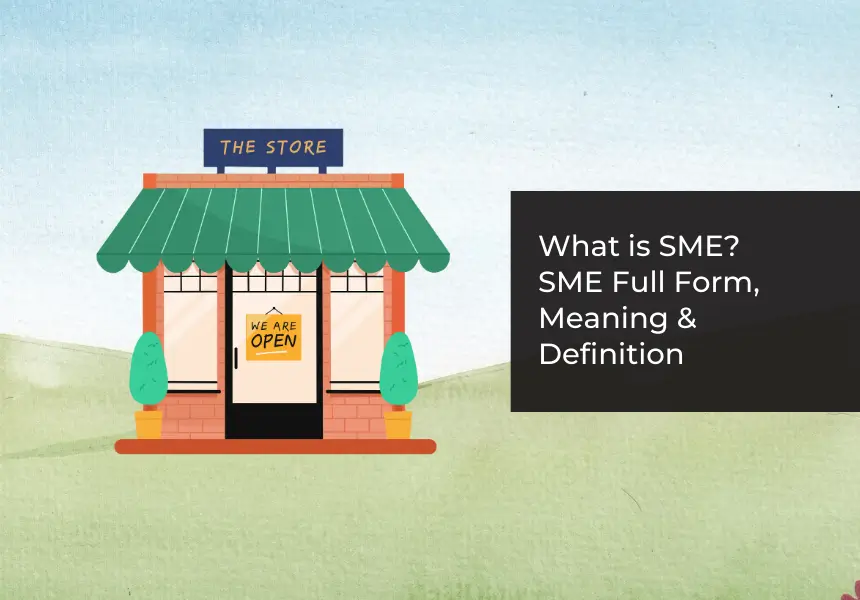
Micro, Small and Medium Enterprises (MSMEs) are a vital part of India’s economy – creating jobs, supporting exports, fostering innovation and enabling regional development.
Despite their importance, small businesses often face challenges accessing timely finance. MSME loans are designed to address these funding needs and support business operations, expansion, and productivity improvements.
This guide explains what an MSME loan is, the common types available, how MSMEs are classified under current rules, the benefits and limitations of registration, and practical steps businesses can take when seeking finance.
What is an MSME loan?
An MSME loan is business financing extended to micro, small and medium enterprises to help meet working capital needs, buy equipment, expand operations, manage cash flow, or invest in productivity.
Different lenders offer product variants – term loans, working capital facilities, equipment finance, invoice discounting, lines of credit, and more – to suit differing business requirements.
MSME loans may be provided by banks, NBFCs and specialised lenders; specific product features (tenure, interest rate, collateral requirement) vary by provider and borrower profile.
Updated MSME classification (2025 thresholds)
MSME classification is used to determine eligibility for various schemes and policy benefits. The investment and turnover thresholds were updated in 2025. Under the current classification, an enterprise falls into the following categories:
Micro enterprise:
Investment in plant & machinery or equipment up to ₹2.5 crore, and annual turnover up to ₹10 crore.
Small enterprise:
Investment up to ₹25 crore, and annual turnover up to ₹100 crore.
Medium enterprise:
Investment up to ₹125 crore, and annual turnover up to ₹500 crore.
Note: These thresholds apply to both manufacturing and service enterprises. Businesses should check the official Udyam/ government guidance for exact definitions and any subsequent updates.
Why MSME loans matter
MSME loans help businesses to:
- Smooth daily cash flow and working capital needs.
- Purchase or upgrade machinery and equipment.
- Expand capacity, open new locations or enter new markets.
- Bridge payment cycles (for example, via invoice discounting).
Access to suitable finance can enable growth, support employment, and allow SMEs to capitalise on new opportunities. However, outcomes depend on the lender, the product chosen and the borrower’s financial profile.
Common types of MSME loans
Here are commonly available MSME financing options and typical use cases:
1. Term Loans
Lump-sum loans repaid over a fixed tenure; suited for capex like machinery or facility expansion.
2. Working Capital Loans
Short-term finance to fund day-to-day operations: inventory, payroll, supplier payments.
3. Equipment Financing
Loans structured to purchase machinery/equipment, often secured against the asset.
4. Line of Credit / Overdraft
A pre-approved credit limit that businesses can draw on as required; interest charged on amounts used.
5. Invoice / Bill Discounting
Lenders advance funds against unpaid invoices to unlock working capital.
6. Point-of-Sale (POS) Finance
Short-term financing repaid from daily card sales; common for retailers and small merchants.
7. Business Credit Cards
Revolving credit for small, recurring business expenses.
8. Government-Supported Schemes
Various schemes (examples below) provide support through credit guarantees, subsidies or special credit windows.
Government schemes and support (examples – eligibility varies)
Several government initiatives exist to improve finance availability for MSMEs. These are examples and each scheme has specific eligibility, limits and conditions:
1. Credit Guarantee schemes (e.g., CGTMSE)
Provide credit guarantees that help lenders offer collateral-free lending to eligible MSMEs.
2. PMEGP / Cluster and Technology support programmes
Provide targeted subsidies or support for specific sectors/enterprises.
3. MUDRA / other small-business credit programmes
Offer financing pathways for micro enterprises and entrepreneurs.
4. Stand-Up India
Targeted support for women and SC/ST entrepreneurs.
These schemes are illustrative. Eligibility, coverage and benefits vary by scheme and time; readers should consult official programme pages for details and current terms.
Benefits of Udyam (MSME) registration
Udyam registration (commonly referred to as MSME registration) is free and paperless and gives a government-recognised identity to enterprises. Registered businesses can become eligible for:
- Priority sector considerations and certain credit schemes (subject to lender policies).
- Access to schemes and incentives that require registration.
- Enhanced credibility when bidding for government procurement or participating in certain tender processes (subject to scheme rules).
These are potential benefits – availability and extent of benefits depend on scheme rules, lender practices and, in some cases, state-level policies.
Challenges MSMEs face when applying for loans
Common hurdles include:
- Insufficient formal credit history or financial statements
- Collateral requirements
- Lengthy approval processes
- Seasonal cash flows
- Digital or documentation gaps
Knowing these constraints helps businesses prepare the right documents and choose the most appropriate finance product.
Practical checklist: How to prepare before applying
A quick checklist to improve readiness:
1. Udyam / MSME registration (if applicable) – register online on the Udyam portal to obtain recognition (registration is free and paperless).
2. Financial records – recent bank statements, P&L or turnover summaries, GST returns or other financials.
3. Identity & business documents – PAN, Aadhaar of proprietor/partners, business address proof, registration documents.
4. Clear purpose – be ready to explain whether funds are for working capital, equipment, expansion or debt refinancing.
5. Projected cash flows – have a simple repayment plan and cash flow projection to share with the lender.
How to choose the right MSME loan type
- Short cash gaps / seasonal needs: consider overdraft / line of credit or invoice discounting.
- Buying machinery / long-term investment: consider term loans or equipment finance.
- Unsecured small ticket needs: look at government-backed schemes or credit guarantee options.
- If you lack collateral: investigate credit guarantee schemes or digital lenders that lend on cash flow indicators.
Always compare tenor, interest rate range, fees, prepayment terms and documentation requirements across lenders.
Where to find more information and official resources
For the most accurate and up-to-date information, consult official government and scheme pages (Udyam portal and relevant ministry or scheme pages) and the specific lender’s disclosures. Scheme rules and thresholds can be updated, and state-level incentives vary.
If you want to review available product options, you can explore our MSME loan product page: MSME loan options
Conclusion
MSME loans are an important tool for business growth, but their suitability depends on the enterprise’s needs, financials, and the specific loan product. Use this guide to understand options and prepare documentation; consult lenders and official scheme pages for details and current terms.
Frequently Asked Questions
Q1: Is Udyam (MSME) registration mandatory?
A: No – registration is not mandatory for all loans, but it can help enterprises become eligible for certain schemes and improve visibility with lenders and procurement portals.
Q2: Is MSME/Udyam registration free?
A: Yes. Udyam registration on the official portal is free and paperless. Be wary of intermediaries charging fees.
Q3: How long does MSME registration take?
A: Registration typically completes quickly once Aadhaar and PAN verification succeed. In some cases, verification issues may require additional steps.
Q4: Do MSME loans always require collateral?
A: Not always. Some lenders and government-backed schemes allow collateral-free lending up to certain limits, especially when backed by credit guarantee programmes. Terms vary by scheme and lender.
Q5: What determines the interest rate on an MSME loan?
A: Interest rates depend on the lender’s policy, loan type, borrower credit profile, loan amount and tenure, and any scheme support or guarantee in place.








